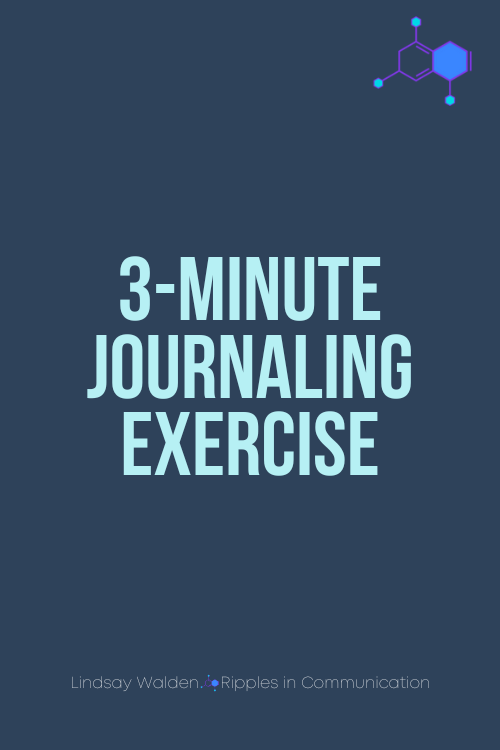Did You Know Journaling Works Anytime, Anywhere (And You May Have Been Told Some Wrongs)
The Big Misconception About Journaling
Most people think journaling needs to be structured, scheduled, and time-consuming to be effective. You’ve probably heard advice like:
“Write first thing in the morning to set your mindset for the day.”
“Journal before bed to reflect on your thoughts.”
“Be consistent—write every single day.”
While these ideas work for some people, they’re the #1 reason most people quit journaling.
Because life doesn’t always allow for strict routines.
Some days, mornings are too rushed. Some nights, you’re too tired. And on other days, you simply don’t feel like writing.
So what happens?
You skip a day.
Then another.
Then journaling starts feeling like a “chore” instead of a tool.
And before you know it—you’ve stopped entirely.
But what if journaling didn’t have to be rigid?
What if you could do it whenever you actually needed it—without guilt?
That’s exactly the reasons the CNT Anytime Journal exists.
It removes the pressure of “perfect journaling” and replaces it with flexible, real-time reflection that fits your life.
Hey before we get started….
Have you grabbed your FREE CNT Toolkit Sampler yet? It’s packed with science-backed tools designed to help you regulate emotions, manage stress, and develop deep self-awareness. If you’ve ever felt overwhelmed by your reactions or stuck in negative thought patterns, this toolkit will give you the proven strategies I use with clients to help them strengthen emotional neutrality, rewire unhelpful responses, and build lasting resilience. Inside, you’ll find practical exercises and guided reflections to help you navigate challenges with clarity and confidence. Enter your email below, and I’ll send it straight to your inbox!
The Science Behind “Anytime” Journaling
The human brain processes 50,000+ thoughts per day—but most of them happen unconsciously.
This means:
You’re constantly forming opinions, making decisions, and experiencing emotions—but rarely stopping to process them.
When you don’t process your thoughts, your brain stores mental clutter—leading to stress, overthinking, and emotional buildup.
Your mind operates in two modes: 1) “Active mode” (thinking, planning, doing) and 2) “Reflective mode” (pausing, analyzing, making sense of things)
If you never switch to Reflective Mode, your brain stays in a constant loop of reactivity, instead of clarity.
Journaling forces a pause—helping your brain untangle thoughts, recognize patterns, and make better decisions.
But here’s the key:
Journaling works best when you do it at the moment your brain needs it most—not just because your schedule says so.
That’s the biggest reason anytime journaling is more effective than scheduled journaling!
3 Reasons You May Struggle to Journal (And How to Fix It)
If you’ve ever tried journaling and gave up, it’s likely because of one of these three reasons:
1. “I Don’t Have Time”
Most people assume journaling requires 30 minutes of deep reflection.
But research shows that even 2-3 minutes of writing improves emotional clarity, stress reduction, and problem-solving ability
Fix: Try “Micro-Journaling.” Write one sentence about your current thoughts. That’s enough to create mental space. (This is exactly what you get with the Anytime Journal.) You get your choice of 34 pages of prompts!
2. “I Don’t Know What to Write”
Staring at a blank page feels overwhelming. Without structure, it’s easy to overthink.
Fix: Use prompts that guide your thinking.
Try one of these:
“What’s one thought taking up space in your mind right now?”
“If you could express anything without holding back, what would you say?”
“What’s one thing you need to remind yourself of today?”
Instead of forcing creativity, let the prompts pull ideas out of you.
3. “I Feel Silly Writing Things Down”
Many people hesitate because they feel journaling is pointless, dramatic, or self-indulgent…
But let’s flip the perspective:
Think of journaling as leaving notes for your future self.
Every thought you write today could be the exact reminder you need weeks from now.
Fix: Instead of journaling for “the moment,” journal for the version of you who might need this later.
Try This Right Now: The 3-Minute Brain Dump
If you’re still a bit skeptical, try this exercise right now—it takes only three minutes:
Step 1: Set a timer for 3 minutes.
Grab a notebook (or open your Notes app).
Start writing—anything that comes to mind.
Step 2: Don’t edit or overthink.
Let it be messy, unfiltered, and raw.
Even if you just list random thoughts, that’s fine.
Step 3: When the timer stops, read what you wrote.
Notice how your brain feels clearer.
That’s the power of journaling.
Not structured. Not planned. Just a quick mental reset when you need it.
This is exactly what the Anytime Journal is designed for—helping you capture thoughts, process emotions, and gain clarity on demand.
The Anytime Journal helps you see yourself more clearly, and self-reflection is the key to personal growth.
If you’ve ever wondered about the reasons you react the way you do, wondered how come some emotions seem bigger than others, or wanted to gain insight into your patterns, the Anytime Journal is what you need!







